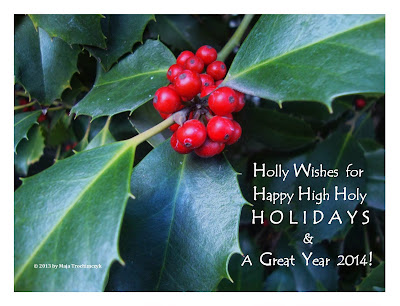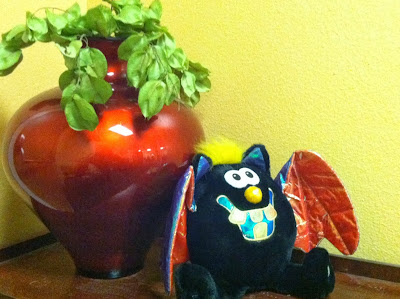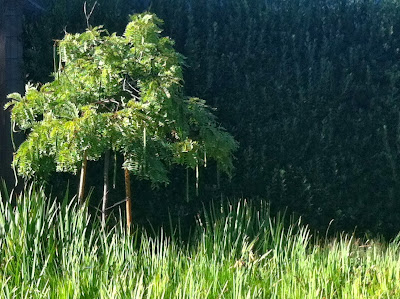1
A song of the grass and fields!
A song of the soil, and the good green grass!
A song no more of the city streets;
A song of the soil of the fields.
A song with the smell of sun-dried hay, where the nimble pitchers handle the pitch-fork;
A song tasting of new wheat, and of fresh-husk’d maize.
2
For the lands, and for these passionate days, and for myself,
Now I awhile return to thee, O soil of Autumn fields,
Reclining on thy breast, giving myself to thee,
Answering the pulses of thy sane and equable heart,
Tuning a verse for thee.
O Earth, that hast no voice, confide to me a voice!
O harvest of my lands! O boundless Summer growths!
O lavish, brown, parturient earth! O infinite, teeming womb!
O theatre of time, and day, and night!
A verse, to seek to see, to narrate thee.
3
For still upon this stage,
I acted God’s calm, annual drama;
Gorgeous processions, songs of birds,
Sunrise, that fullest feeds and freshens most the soul,
The heaving sea, the waves upon the shore, the musical, strong waves,
The woods, the stalwart trees, the slender, tapering trees,
The flowers, the grass, the lilliput, countless armies of the grass,
The heat, the showers, the measureless pasturages,
The scenery of the snows, the wind’s free orchestra,
The stretching, light-hung roof of clouds, the clear cerulean, and the bulging, silvery fringes,
The high dilating stars, the placid, beckoning stars,
The shows of all the varied soils, and all the growths and products,
The moving flocks and herds, the plains and emerald meadows,
These for all ages’, races’ witnessing.
4
Fecund America! To-day,
Thou art all over set in births and joys!
Thou groan’st with riches! thy wealth clothes thee as with a swathing garment!
Thou laughest loud with ache of great possessions!
A myriad-twining life, like interlacing vines, binds all thy vast demesne!
As some huge ship, freighted to water’s edge, thou ridest into port!
As rain falls from the heaven, and vapors rise from the earth, so have the precious values fallen upon thee, and risen out of thee!
Thou envy of the globe! thou miracle!
Thou, bathed, choked, swimming in plenty!
Thou lucky Mistress of the tranquil barns!
Thou Prairie Dame that sittest in the middle, and lookest out upon thy world, and lookest East, and lookest West!
Dispensatress, that by a word givest a thousand miles—that giv’st a million farms, and missest nothing!
Thou All-Acceptress—thou Hospitable—(thou only art hospitable, as God is hospitable.)
5
When last I sang, sad was my voice;
Sad were the shows around me, with deafening noises of hatred, and smoke of conflict;
In the midst of the armies, the Heroes, I stood,
Or pass’d with slow step through the wounded and dying.
But now I sing not War,
Nor the measur’d march of soldiers, nor the tents of camps,
Nor the regiments hastily coming up, deploying in line of battle.
No more the dead and wounded;
No more the sad, unnatural shows of War.
Ask’d room those flush’d immortal ranks? the first forth-stepping armies?
Ask room, alas, the ghastly ranks—the armies dread that follow’d.
6
Pass—pass, ye proud brigades!
So handsome, dress’d in blue—with your tramping, sinewy legs;
With your shoulders young and strong—with your knapsacks and your muskets;
(How elate I stood and watch’d you, where, starting off, you march’d!)
Pass;—then rattle, drums, again!
Scream, you steamers on the river, out of whistles loud and shrill, your salutes!
For an army heaves in sight—O another gathering army!
Swarming, trailing on the rear—O you dread, accruing army!
O you regiments so piteous, with your mortal diarrhoea! with your fever!
O my land’s maimed darlings! with the plenteous bloody bandage and the crutch!
Lo! your pallid army follow’d!
7
But on these days of brightness,
On the far-stretching beauteous landscape, the roads and lanes, the high-piled farm-wagons, and the fruits and barns,
Shall the dead intrude?
Yet the dead mar not—they also fit well in Nature;
They fit very well in the landscape, under the trees and grass,
And along the edge of the sky, in the horizon’s far margin.
Nor do I forget you, departed;
Nor in Winter or Summer, my lost ones;
But most, in the open air, as now, when my soul is rapt and at peace—like pleasing phantoms,
Your dear memories, rising, glide silently by me.
8
I saw the return of the Heroes;
(Yet the heroes never surpass’d, shall never return;
Them, that day, I saw not.)
I saw the great corps,
I saw them approaching, defiling by, with divisions,
Each, at its head, in the midst of his staff, the General.
I saw the processions of armies,
Streaming northward, their work done, they paused awhile in clusters of mighty camps.
No holiday soldiers!—youthful, yet veterans;
Worn, swart, handsome, strong, of the stock of homestead and workshop,
Harden’d of many a long campaign and sweaty march,
Inured on many a hard-fought, bloody field.
9
A pause—the armies wait;
A million flush’d, embattled conquerors wait;
The world, too, waits—then, soft as breaking night, and sure as dawn,
They melt—they disappear.
Exult, indeed, O lands! victorious lands!
Not there your victory, on those red, shuddering fields;
But here and hence your victory.
Melt, melt away, ye armies! disperse, ye blue-clad soldiers!
Resolve ye back again—give up, for good, your deadly arms;
Other the arms, the fields henceforth for you, or South or North, or East or West,
With saner wars—sweet wars—life-giving wars.
10
Loud, O my throat, and clear, O soul!
The season of thanks, and the voice of the carol of full-yielding;
The chant of joy and power for boundless fertility.
All till’d and untill’d fields expand before me;
I see the true arenas of my race and land—or first, or last,
Man’s innocent and strong arenas.
I see the Heroes at other toils;
I see, well-wielded in their hands, the better weapons.
11
I see where America, Mother of All,
Well-pleased, with full-spanning eye, gazes forth, dwells long,
And counts the varied gathering of the products.
Busy the far, the sunlit panorama;
The western fields appear, with endless, prodigal surface;
(The steam-ploughs and horse-ploughs did their work well, and the rotary spader did its work well.)
Lo! prairie, orchard, and the yellow grain of the North,
Cotton and rice of the South, and Louisiana cane;
Open, unseeded fallows, rich fields of clover and timothy,
Kine and horses feeding, and droves of sheep and swine,
And many a stately river flowing, and many a jocund brook,
And healthy uplands with their herby-perfumed breezes,
And the good green grass—that delicate miracle, the ever-recurring grass.
12
Toil on, Heroes! harvest the products!
Not alone on those warlike fields, the Mother of All,
With dilated form and lambent eyes, watch’d you.
Toil on, Heroes! toil well! Handle the weapons well!
The Mother of All—yet here, as ever, she watches you.
13
Well-pleased, America, thou beholdest,
Over the fields of the West, those crawling monsters,
The human-divine inventions, the labor-saving implements:
Beholdest, moving in every direction, imbued as with life, the revolving hay-rakes,
The steam-power reaping-machines, and the horse-power machines,
The engines, thrashers of grain, and cleaners of grain, well separating the straw,
The power-hoes for corn-fields—the nimble work of the patent pitch-fork;
Beholdest the newer saw-mill, the cotton-gin, and the rice-cleanser.
Beneath thy look, O Maternal,
With these, and else, and with their own strong hands, the Heroes harvest.
All gather, and all harvest;
(Yet but for thee, O Powerful! not a scythe might swing, as now, in security;
Not a maize-stalk dangle, as now, its silken tassels in peace.)
14
Under Thee only they harvest—even but a wisp of hay, under thy great face, only;
Harvest the wheat of Ohio, Illinois, Wisconsin—every barbed spear, under thee;
Harvest the maize of Missouri, Kentucky, Tennessee—each ear in its light-green sheath,
Gather the hay to its myriad mows, in the odorous, tranquil barns,
Oats to their bins—the white potato, the buckwheat of Michigan, to theirs;
Gather the cotton in Mississippi or Alabama—dig and hoard the golden, the sweet potato of Georgia and the Carolinas,
Clip the wool of California or Pennsylvania,
Cut the flax in the Middle States, or hemp, or tobacco in the Borders,
Pick the pea and the bean, or pull apples from the trees, or bunches of grapes from the vines,
Or aught that ripens in all These States, or North or South,
Under the beaming sun, and under Thee.
|



.jpg)












.JPG)






